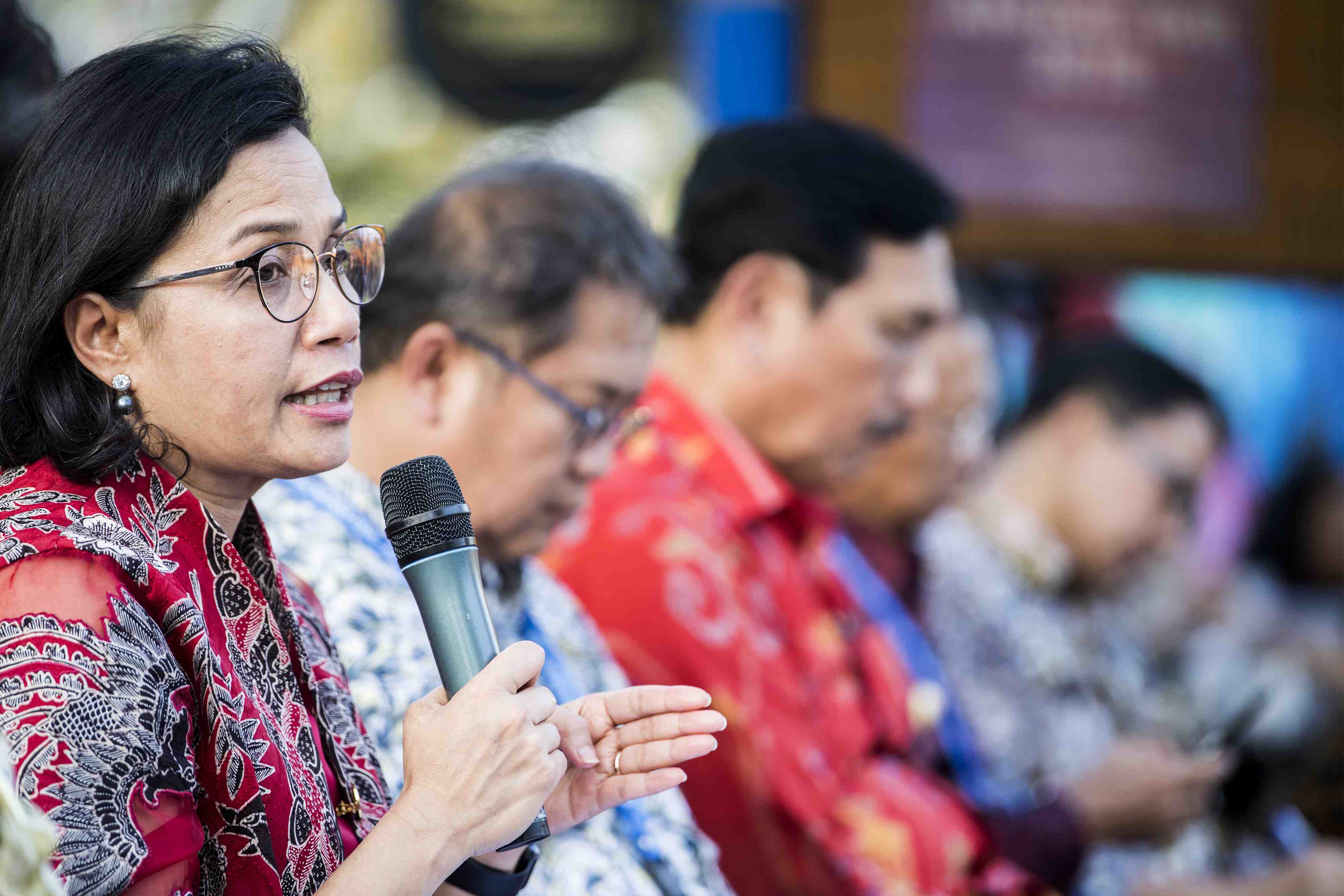
:
Oleh Irvina Falah, Minggu, 14 Oktober 2018 | 13:21 WIB - Redaktur: Irvina Falah - 387
Nusa Dua, InfoPublik - Indonesian Finance Minister Sri Mulyani Indrawati made a presentation on the achievements of the International Monetary Fund-World Bank Group 2018 Annual Meetings, especially for Indonesia.
"The issues discussed at the meeting are very relevant to national agendas and interests, including the issue of investment in human capital, digital economy, and sharia finance," the minister said in Nusa Dua, Saturday (10/13).
During this event, participants and stakeholders discussed and gained knowledge about the current global priority issues, such as: the world economic development, the challenges and efforts to overcome it; the utilization of technological developments to encourage inclusive growth, climate change mitigation, human capital investment, infrastructure development, urbanization, poverty alleviation and reducing inequality; increasing women participation for the economic inclusiveness; as well as institutional issues at the IMF and WBG.
In the 2018 Annual Meetings, Indonesia was selected as one of the "early adopters" of advice countries for the Human Capital Index (HCI), taking into consideration several significant achievements in recent years. The HCI methodology is expected to provide a better understanding to measure the government's success of in developing human capital. Thus, the Government can strengthen investment strategies for the development of human capital, especially in the health and education sectors.
Finance Minister explained that Indonesia also signed a number of infrastructure projects that would be financed through cooperation between Indonesian Government with a number of international financial institutions.
"Many delegates have been to Bali more than 10 years ago. They saw how Indonesia has actually developed its infrastructure. This raises hope that Indonesia has the potential to be given infrastructure financing in other parts of Indonesia," Sri Mulyani said.
According to her, Indonesia also discussed the most appropriate solutions related to disaster response, especially the framework of disaster risk financing policy during the meetings. The policy framework is very important, given that Indonesia is geographically located near the Eurasian and Indo-Australian tectonic plate boundaries, which poses Indonesia as disaster-prone country. Therefore, Indonesia will immediately begin discussing new instruments for post-disaster funding.
"We also learned from other countries having experience dealing with disasters, with the support of ADB and the World Bank," she said.
She explained that natural disasters can cause casualties and injured victims and damage and destruction of residential homes with enormous economic losses. The problem that arises is the high cost of post-natural disaster rehabilitation and reconstruction for damaged and destroyed residences/buildings.
A country's fiscal security and health are threatened if there is no sound policy framework in place that can mitigate the economic risks caused by disasters nor responsive post-disaster management.
Moreover, in terms of financial technology, the Finance Minister stated that for the first time the Bali Fintech principles were used by many countries to develop financial technology. The formulated principles have enabled Indonesia to be able to help the people's economy.
As for the issue of climate change, Finance Minister together with the Environment Ministry had formed a new public service body (BLU) to manage climate change funds. "We also work with Bappenas [The National Development Planning Agency] to create programs related to climate change," he said. (Ismadi Amrin/Gusti Andry/Translator: Penni Patmawati)